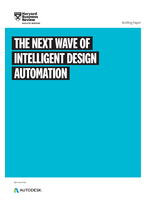IPC Publication details results of PCB Technology Trends study.
Share:
Press Release Summary:
Published by IPC, PCB Technology Trends 2011 shows how demands of miniaturization and high-speed technology are driving changes in PCB processes and materials. This 53-page report presents technology demands of today and foretells changes expected by 2014 that will affect PCB fabricators as well as materials and equipment suppliers. Study was conducted in late 2011 in English and Chinese, with 41 PCB manufacturing companies from Asia, Europe, and North America participating.
Original Press Release:
IPC Technology Trends Study Reveals Changes in Store for PCB Fabricators and Suppliers
BANNOCKBURN, Ill., USA - PCB Technology Trends 2011, a new study published this week by IPC - Association Connecting Electronics Industries®, shows how the demands of miniaturization and high-speed technology are driving changes in printed circuit board (PCB) processes and materials. The 53-page report presents the technology demands of today and foretells the changes expected by 2014 that will affect PCB fabricators as well as materials and equipment suppliers.
IPC's PCB technology trends study was conducted in late 2011 in English and Chinese. Forty-one PCB manufacturing companies participated, including many of the leading companies in Asia, Europe and North America. They represent 16.5 percent of the world PCB market. The IPC study sample is representative of the global industry in terms of company size and product mix.
Between 2011 and 2014, high-density interconnect (HDI) board production is expected to grow 26 percent for the companies that participated in IPC's PCB Technology Trends study. They also anticipate greater use of stacked and staggered microvias, leading to any-layer microvias and "via anywhere" capability. While miniaturization and the demands of high-speed technology are driving these trends, companies cite solder mask registration and assembly as the two most common factors limiting the miniaturization of circuitry dimensions.
Most of the companies are evaluating new surface finishes, especially electroless nickel, immersion palladium and immersion gold (ENIPIG). The report also confirms that the high price of gold is having an impact on changes in PCB processing, with nearly one-quarter of the participants trying alternative metals. Seventeen percent of respondents are trying to use reduced thicknesses of gold, including some who claim that the price of gold is having no impact on their material selection.
Of the two primary substrate materials used today, multi-function epoxy resin is expected to grow to be used in more than half of panel area produced by 2014, while the use of glass fabric is expected to decline. Companies' data on laminates used today along with forecasts for 2014 show laminates moving toward higher-temperatures thermal properties. They also predict the use of more low-loss materials. It is expected that by 2014 nearly half of the panel area produced will be halogen free and nearly three-quarters will be lead free.
The industry anticipates significant increases in the production of hybrids or modules, and in the use of printed electronics and optical technology in producing printed boards by 2014.
PCB Technology Trends 2011 is available free to companies that participated in the survey. Other companies may purchase the report by visiting IPC's online store at www.ipc.org/pcb-tech-trends-2011. The price for IPC members is $675 and the standard price is $1350. The report will also be published in Chinese next month.
About IPC
IPC (www.IPC.org) is a global trade association based in Bannockburn, Ill., dedicated to the competitive excellence and financial success of its 3,100 member companies which represent all facets of the electronics industry, including design, printed board manufacturing, electronics assembly and test. As a member-driven organization and leading source for industry standards, training, market research and public policy advocacy, IPC supports programs to meet the needs of an estimated $2.02 trillion global electronics industry. IPC maintains additional offices in Taos, N.M.; Arlington, Va.; Stockholm, Sweden; Moscow, Russia; Bangalore, India; and Shanghai, Shenzhen and Beijing, China.




